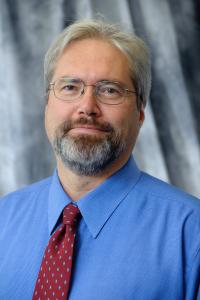One of the world’s top specialists on human vision, David Williams, will be honored with the António Champalimaud Vision Award at Lisbon, in Portugal.

David Williams, University of Rochester, will receive the António Champalimaud Vision Award at a ceremony in Lisbon, Portugal, on September 14 2012. Credit: University of Rochester
Williams holds the posts of dean for research in Arts, Science, and Engineering, director of Center for Visual Science, and faculty member at the University of Rochester's Institute of Optics. The awards ceremony will be presided over by the President of Portugal. This ceremony is in recognition of David William’s research on adaptive optics technologies. His work is considered as a major breakthrough in the understanding and/or preservation of human vision.
David Williams and his team have applied the techniques of adaptive optics to the human eye to enable imaging of each retinal cell and cone photoreceptor in the human retina by viewing through the pupil. Astronomers first used adaptive optics to enhance the clarity of telescopes while viewing the Earth’s atmosphere. William’s techniques can help to enhance the quality of vision in patients who use intraocular lenses and contact lenses, and also in those who have undergone laser refractive surgery. This is mainly because the adaptive optics’ techniques can alter the light entering and leaving the eye, and thereby enhance not only the retinal images but also the quality of vision.
The António Champalimaud Vision Award for contributions in vision science and ophthalmology carries prize money worth of one million euros. David Williams will be using $630,000 from this prize money for future research. The jury for this award expressed their pride over David William’s groundbreaking research work in physiological optics. They also felt elated that Williams’ team had enhanced the possibilities in retinal imaging and vision correction techniques in the human eye.
Disclaimer: The views expressed here are those of the author expressed in their private capacity and do not necessarily represent the views of AZoM.com Limited T/A AZoNetwork the owner and operator of this website. This disclaimer forms part of the Terms and conditions of use of this website.